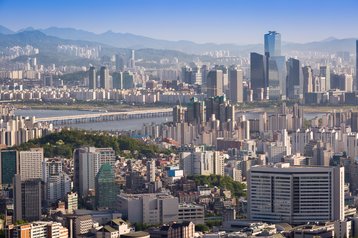Singapore and Korea have the fastest data centers in the Asia/Pacific region, with more than two in five boasting network connections of at least 1Gbps to enterprise customers. Not too far behind is China and Thailand, with the proportion of such networks in data centers there pegged at one in three.
These figures come from an extensive survey of WAN and communications in the Asia/Pacific region, commissioned by Ciena and conducted by analyst firm IDC. Some 1,400 senior IT decision makers from large enterprises in the Asia Pacific region were surveyed, spanning a total of 14 markets including Australia, China, Hong Kong, India, Indonesia, Malaysia, the Philippines, Singapore and South Korea.
Data funnel
The study found that data centers in the region are becoming more interconnected, and were using this connectivity for off-site storage and data backup. And as more data is being funneled into the cloud in Asia, businesses are also starting to operate multiple clouds in a hybrid environment, or by spreading workloads between data centers.
The Ciena report mirrors the findings of a recent Rackspace study that found the use of multiple cloud services increasing in the region, and that businesses are facing a variety of challenges stemming from multi-cloud use.
With increasing cloud use, faster network speeds for enterprise are no surprise. Indeed, more than 70 percent of data centers across Asia are now served by networks that offer speeds greater than 100Mbps to the enterprises, according to the survey.
“Rapid economic growth in Asia is driving both top-line and regional business expansion. Enterprises are increasingly focused on meeting rising demand for hybrid networks that deliver speed, agility and performance,” said Shiv Putcha, the associate director, Service Provider & Connected Customer Research at IDC Asia-Pacific.
“The emerging on-demand paradigm is driving huge changes in the IT environment with the data centre set to be one of the critical enablers of this shift,” he said.

